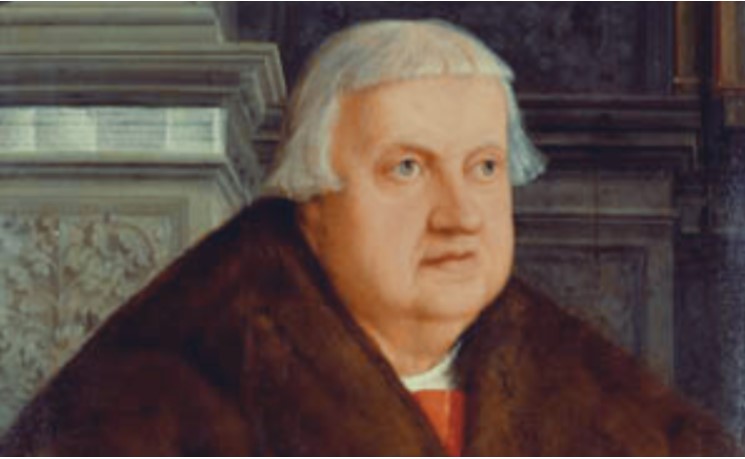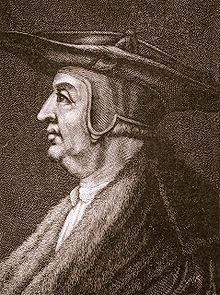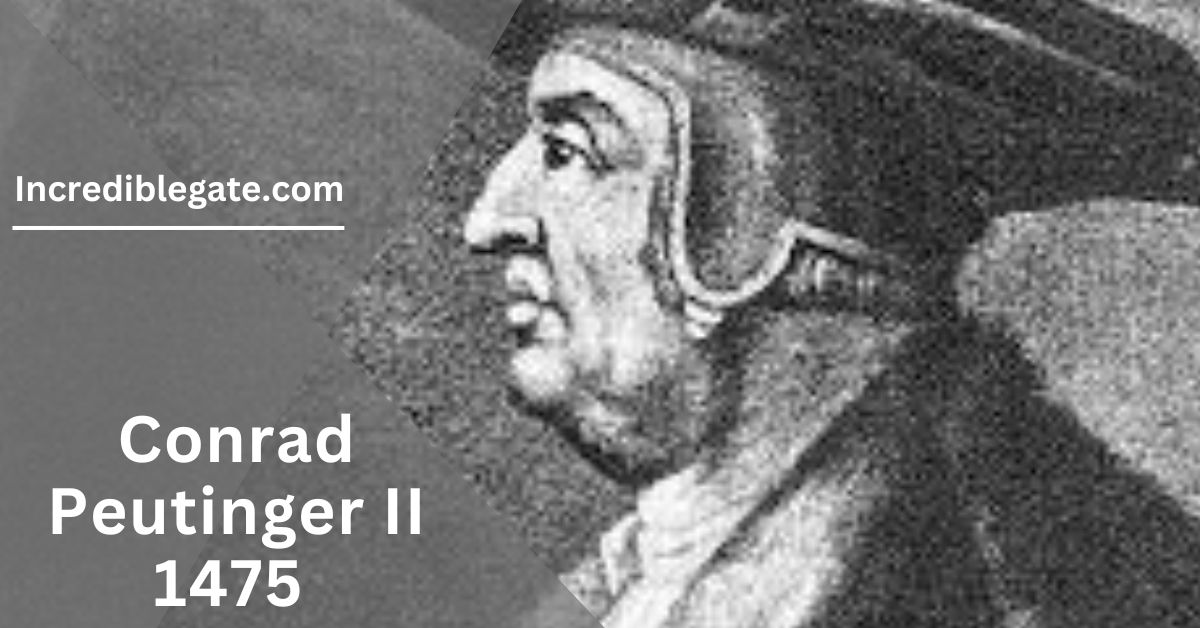Conrad Peutinger II, born in 1475, might not be a widely recognized name, but his impact on history, diplomacy, and humanism is substantial. As a key figure of the Renaissance, his multifaceted contributions continue to resonate today.
This article will explore his diverse life, focusing on his education, achievements, and lasting impact. We’ll also look at how the work of Conrad Peutinger II 1475 influenced Renaissance thought and continues to be relevant in modern discussions of humanism and scholarship.
Who Was Conrad Peutinger II?
Conrad Peutinger II, born in 1475 in Augsburg, Germany, was an influential scholar and diplomat during the Renaissance. He was known for his passion for classical literature and history, making him a prominent humanist. Peutinger collected Roman artifacts and manuscripts, playing a key role in preserving ancient knowledge.
He is best remembered for discovering the Tabula Peutingeriana, a significant Roman map illustrating the empire’s road system. Throughout his life, he also engaged in politics, advising leaders and helping to mediate conflicts within the Holy Roman Empire. His contributions continue to be recognized for shaping the intellectual landscape of his era.
Early Life And Education – Must Read!
Conrad Peutinger II, born in 1475 in Augsburg, Germany, grew up in a wealthy and influential family. His father, Conrad Peutinger I, was a successful merchant, which allowed young Conrad to receive a good education and connect with important intellectual circles.
As a child in Augsburg, a lively center of trade and ideas, he was surrounded by the vibrant atmosphere of the Renaissance. He attended several prestigious universities, including the University of Padua in Italy, where he studied law.
During his time in Italy, Conrad Peutinger II 1475 was introduced to humanism, which sparked his interest in classical texts and ancient history. This strong educational background laid the foundation for his future scholarship, diplomacy, and humanism achievements.
What Was Conrad Peutinger’s Role In The Renaissance?
Conrad Peutinger II played a vital role in the Renaissance as a humanist scholar, diplomat, and collector of classical artifacts. He was deeply involved in the humanist movement, emphasizing Greek and Roman culture revival. One of his notable achievements was discovering the Tabula Peutingeriana, a 4th-century Roman road map that provided insights into Roman geography and trade.
In addition to his scholarly contributions, Peutinger served as a legal advisor and city councilor in Augsburg, influencing political matters during the Protestant Reformation. He promoted educational reforms focused on classical studies and corresponded with prominent humanists like Erasmus, helping to spread humanist ideas.

Contributions Of Conrad Peutinger To Humanism – Let’s See!
Conrad Peutinger made significant contributions to the humanist movement in several key ways:
- Promotion of Classical Knowledge: He dedicated his life to studying and reviving ancient Greek and Roman texts, which were central to the humanist philosophy.
- Collection of Artifacts: Peutinger amassed a large collection of Roman manuscripts, maps, and artifacts, helping to preserve classical culture for future generations.
- Publication of the Tabula Peutingeriana: His discovery and publication of the Tabula Peutingeriana, a vital Roman road map, showcased his commitment to sharing important historical knowledge.
- Educational Advocacy: He pushed for educational reforms that emphasized the study of classical literature and philosophy, believing it would enhance moral and intellectual development in society.
- Networking with Other Scholars: Peutinger corresponded with prominent humanists, such as Erasmus, facilitating the exchange of ideas and furthering the spread of humanist thought.
- Integration of Humanism in Politics: He applied humanist principles to his work in law and governance, advocating for fairness and justice based on classical ideals.
Career As A Diplomat And Politician Of Conrad Peutinger II:
A Trusted Advisor:
Peutinger’s contributions extended beyond academia; he was also an influential diplomat and politician. Serving as a city councilor and legal advisor in Augsburg, his legal expertise and diplomatic skills made him a key figure in the Holy Roman Empire. His involvement in political matters showcased his ability to navigate complex international relations, making him a trusted intermediary in imperial negotiations.
The Diet of Augsburg:
One of Peutinger’s most notable political achievements was his participation in the Diet of Augsburg in 1530, convened by Emperor Charles V. This assembly marked a significant moment in the history of the Protestant Reformation. Peutinger’s diplomatic efforts were instrumental in maintaining a delicate balance between the Catholic and Protestant factions during a time of intense religious conflict, showcasing his ability to mediate and foster dialogue amidst discord.
Intellectual Legacy Of Conrad Peutinger II 1475:
Conrad Peutinger’s intellectual legacy is marked by his dedication to the revival of classical knowledge during the Renaissance. He fostered connections with many prominent scholars of his time, sharing ideas and insights that helped shape the humanist movement.
His extensive collection of manuscripts, artifacts, and maps, including the famous Tabula Peutingeriana, played a crucial role in preserving ancient knowledge for future generations. Through his correspondence and advocacy for education, he promoted the importance of studying classical texts, making them accessible to a wider audience.

Contributions To Law And Civic Reform by Conrad Peutinger II (1475) – Don’t Miss Out!
Implementing Legal Reforms:
Peutinger’s background in law profoundly influenced his governance in Augsburg. He implemented reforms aimed at improving civic administration and justice, seeking to apply principles rooted in classical traditions. His legal expertise allowed him to navigate complex governance issues, fostering a more equitable and just society.
Enhancing Civic Administration:
His commitment to civic reform extended to promoting transparency and fairness within the legal system. Peutinger’s reforms laid the foundation for a more organized and accountable government in Augsburg, demonstrating his belief in the importance of effective governance for societal well-being.
Later Years And Death Of Conrad Peutinger II 1475
In his later years, Conrad Peutinger was actively involved in intellectual and political circles until he died in 1547. He focused much of his time on expanding his manuscripts and Roman artifacts collection, hoping to preserve these treasures for future generations. Despite facing age challenges, he remained passionate about education and disseminating classical knowledge.
Peutinger’s contributions during this period reflected his deep commitment to humanism and scholarship. His death marked the end of an important chapter for Augsburg, but his influence lived on through the works he left behind. Today, he is remembered as a key figure who helped bridge the ancient and modern worlds.
FAQs:
What was Peutinger’s role in politics?
Peutinger served as a city councilor and legal advisor in Augsburg. He played a significant role as a diplomat in the Holy Roman Empire, particularly during the Protestant Reformation, where he helped maintain political stability.
Why is Conrad Peutinger considered a pivotal figure of the Renaissance?
Peutinger is considered a pivotal figure of the Renaissance due to his contributions to humanism, cartography, law, and diplomacy and his efforts to preserve and promote classical knowledge, impacting both his contemporaries and future generations.
What is the Tabula Peutingeriana?
The Tabula Peutingeriana is an ancient Roman road map that stretches over 22 feet long and was discovered by Conrad Peutinger. It represents the Roman road system from Western Europe to India and provides insights into Roman geography and trade routes.
How did Peutinger’s education influence his work?
Peutinger studied at leading universities, including the University of Padua, where he was exposed to humanist ideals and classical texts. His education fostered a lifelong passion for learning and scholarship. The knowledge he gained during these formative years informed his contributions to law, politics, and humanism.
What was Peutinger’s relationship with Emperor Maximilian I?
Peutinger had a close relationship with Emperor Maximilian I, serving as one of his key advisors. This connection allowed him to influence important political decisions within the Holy Roman Empire. His role demonstrated his significant standing in the political landscape of the time.
Conclusion:
Conrad Peutinger II 1475 was a remarkable figure of the Renaissance whose contributions to humanism, law, and diplomacy had a lasting impact on society. His dedication to preserving classical knowledge and promoting education helped shape the intellectual landscape of his time.
Conrad Peutinger II 1475 bridged the ancient and modern worlds through his work and relationships. Today, his legacy inspires those who value history, scholarship, and civic responsibility.
Must Check:

